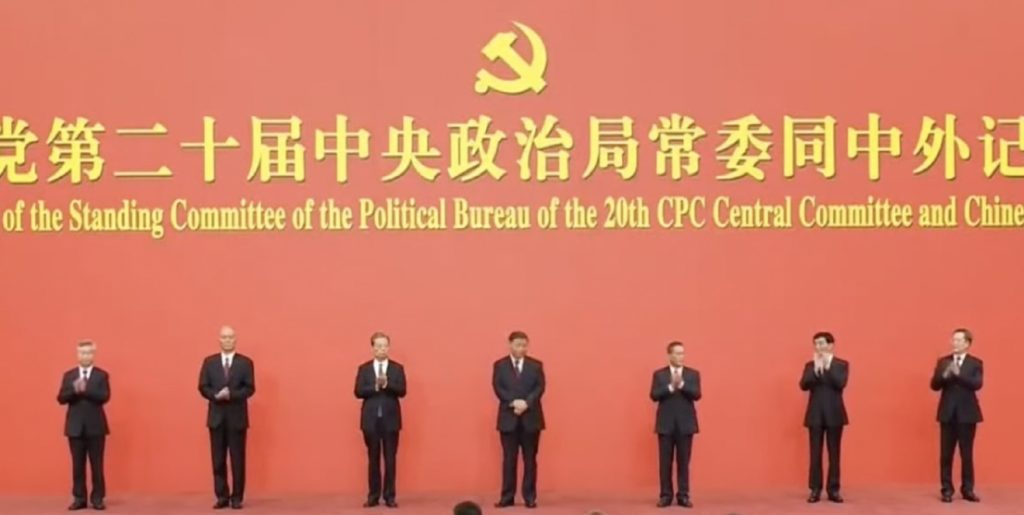As China’s president Xi Jinping enters his third term, he’s announced his new leadership team this week and there’s not a woman in sight.
For the first time in 25 years, China’s Politburo, the government’s second most powerful group and its executive policymaking body contains all-male membership.
China’s even more exclusive group, the seven-member Standing Committee has never welcomed a woman into its membership, but for the past two decades there’s always been at least one female representative in the 25-member Politburo.
While it was expected that a woman wouldn’t be named to the Standing Committee, many held out hope that following the recent retirement of the Politburo’s sole female representative, vice premier Sun Chunlan, another woman would be named in her place to maintain tradition.
The country’s only woman to hold the title of provincial party secretary, Shen Yiqin was a strong contender for Chunlan’s position, but unfortunately the spot was filled by a man.
Yiqin is one of only 11 other women in the 205-member Central Committee and would likely have been a powerful voice had she been promoted.
This 5 per cent representation in the Central Committee and 0 per cent representation in any higher position means that the nearly 700 million women living in China have extremely little power in shaping policy.
Mingly Chen, a Senior lecturer at the University of Sydney studying gender and politics in China tells the New York Times that this lack of representation, “certainly [sends] a message that the Chinese Communist Party does not have an interest in advancing women’s political status.”
“The Chinese Communist Party really is still a patriarchal institution.”
Women in China face a true uphill battle when it comes to entering political systems, and in the Communist party’s 70-year rule, most female political candidates have only managed to break into decision-making positions as a result of marrying powerful men or being used as propaganda tools.
There are also cultural expectations in China that limit womens’ ability to be successful in politics. They’re forced to take on the role of carer in the home and many are expected to retire at age 55, putting a stop to their careers just when they might be reaching a professional peak.
Feminist discussion has also been actively stamped out by the Communist party over the past few years. While the MeToo movement grew in the West, Chinese officials have censored claims of sexual assault and arrested women protesting for their rights.
One high profile example of this occurred last year when tennis champion Peng Shuai went missing for four weeks after publicly accusing former vice premier Zhang Gaoli of sexual assault. Shuai has since been found but keeps a low-profile for her safety and Gaoli was present and in the front row among ranks of dignitaries at the Party congress this week.
In his speech at the opening of Communist Party congress last Sunday, president Xi pledged to “adhere to the basic state policy of gender equality,” but without any representation of female leadership in the Politburo, the party’s poor record of promoting women looks to be getting worse.
Many academics are also pointing out a concern in China’s falling birthrate. An increase in pressure on young people to have children could see more women forced into domestic work and further away from political leadership positions.


